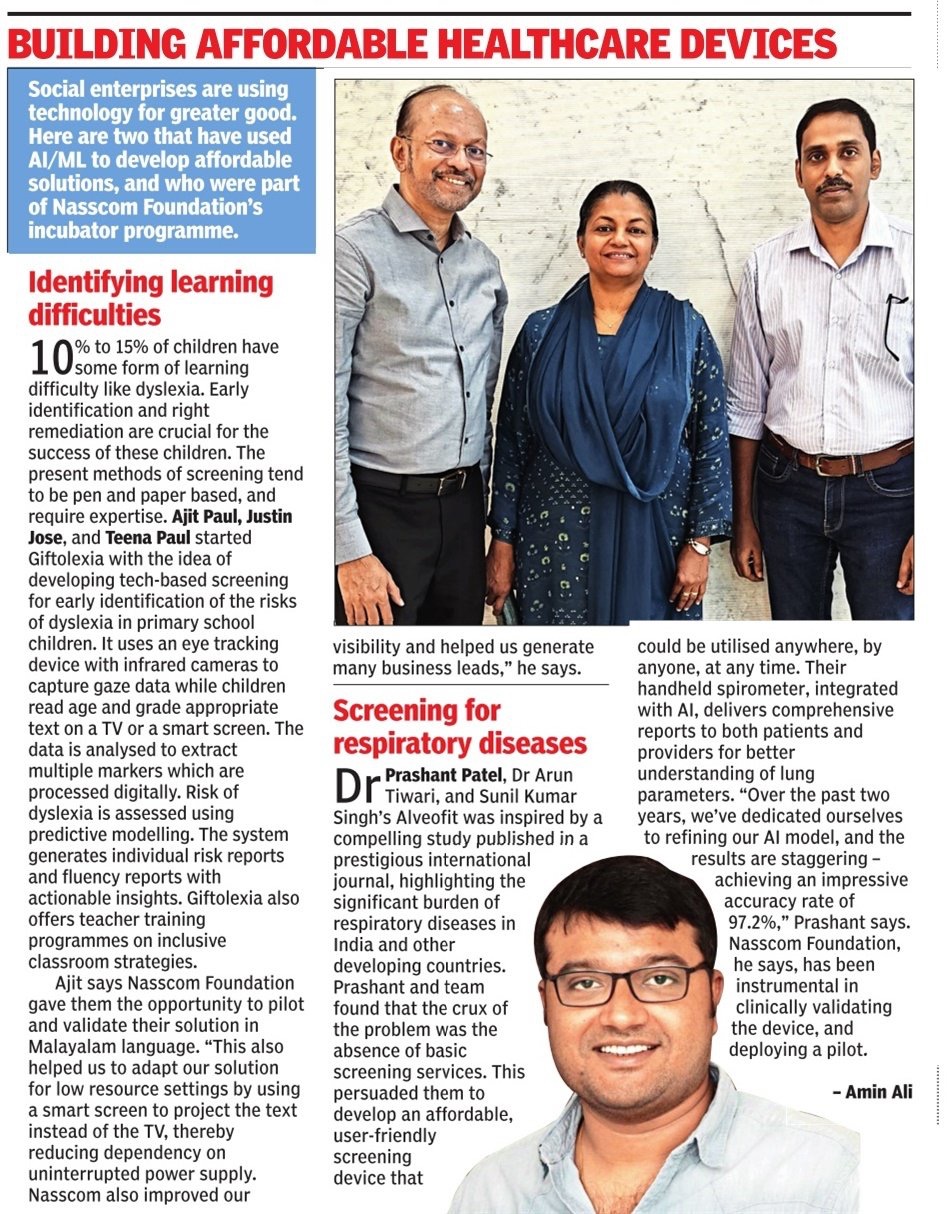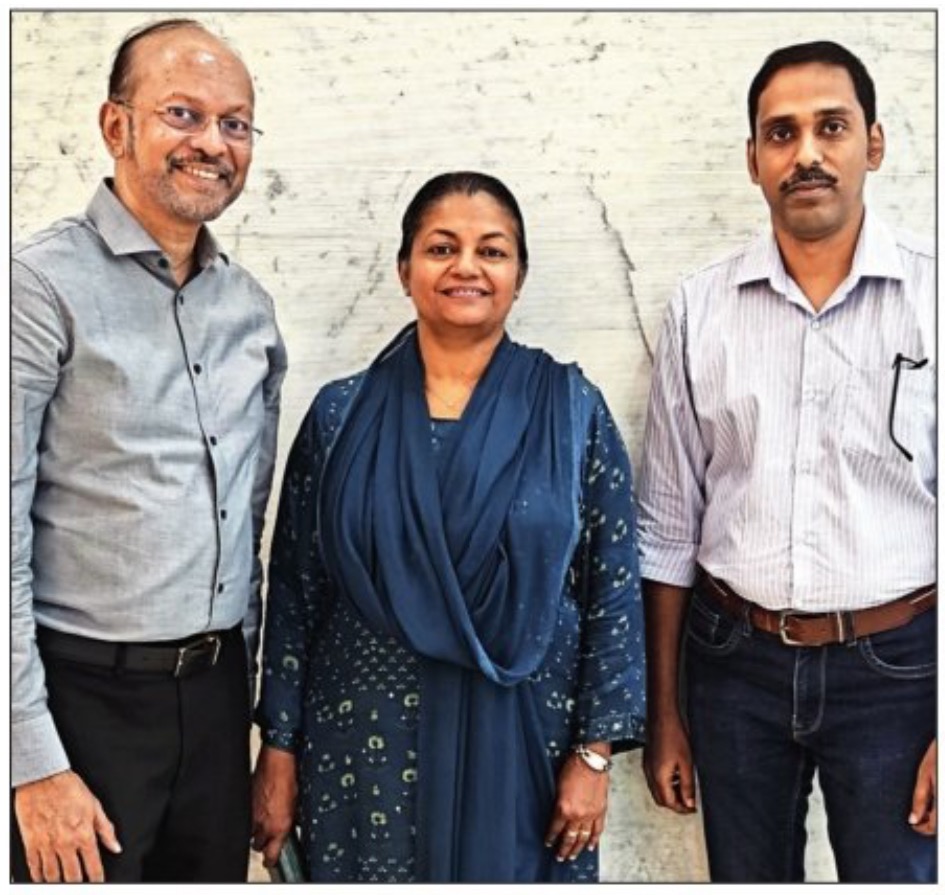
Social enterprises are using technology for greater good
Here are two startups have used AI/ML to develop affordable solutions, and who were part of Nasscom Foundation’s incubator programme.
Giftolexia: Identifying learning difficulties
10% to 15% of children have some form of learning difficulty like dyslexia. Early identification and right remediation are crucial for the success of these children. The present methods of screening tend to be pen and paper based, and require expertise. Ajit Paul, Justin Jose, and Teena Paul started Giftolexia with the idea of developing tech-based screening for early identification of the risks of dyslexia in primary school children. It uses an eye tracking device with infrared cameras to capture gaze data while children read age and grade appropriate text on a TV or a smart screen. The data is analysed to extract multiple markers which are processed digitally. Risk of dyslexia is assessed using predictive modelling. The system generates individual risk reports and fluency reports with actionable insights. Giftolexia also offers teacher training programmes on inclusive classroom strategies.
 Ajit Paul, Justin Jose, and Teena Paul started Giftolexia with the idea of developing tech-based screening for early identification of the risks of dyslexia in primary school children.
Ajit Paul, Justin Jose, and Teena Paul started Giftolexia with the idea of developing tech-based screening for early identification of the risks of dyslexia in primary school children.
Ajit says Nasscom Foundation gave them the opportunity to pilot and validate their solution in Malayalam language. “This also helped us to adapt our solution for low resource settings by using a smart screen to project the text instead of the TV, thereby reducing dependency on uninterrupted power supply. Nasscom also improved our visibility and helped us generate many business leads,” he says.
Alveofit: Screening for respiratory diseases
Dr Prashant Patel, Dr Arun Tiwari, and Sunil Kumar Singh’s Alveofit was inspired by a compelling study published in a prestigious international journal, highlighting the significant burden of respiratory diseases in India and other developing countries. Prashant and team found that the crux of the problem was the absence of basic screening services. This persuaded them to develop an affordable, user-friendly screening device that could be utilised anywhere, by anyone, at any time. Their handheld spirometer, integrated with AI, delivers comprehensive reports to both patients and providers for better understanding of lung parameters.
 Dr Prashant Patel, Dr Arun Tiwari, and Sunil Kumar Singh’s Alveofit was inspired by a study highlighting the significant burden of respiratory diseases in India and other developing countries.
Dr Prashant Patel, Dr Arun Tiwari, and Sunil Kumar Singh’s Alveofit was inspired by a study highlighting the significant burden of respiratory diseases in India and other developing countries.
“Over the past two years, we’ve dedicated ourselves to refining our AI model, and the results are staggering – achieving an impressive accuracy rate of 97.2%,” Prashant says. Nasscom Foundation, he says, has been instrumental in clinically validating the device, and deploying a pilot.

Post a comment